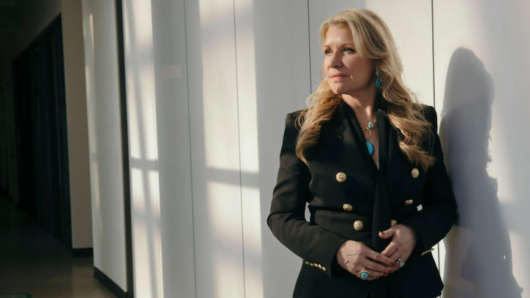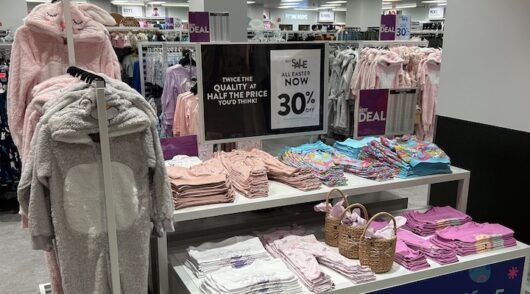As an eco-conscious consumer, Phoebe Yu, founder & CEO of Ettitude, wanted robust, sustainable products made from materials with minimal environmental impact. This desire to reduce her carbon footprint led Phoebe to create Ettitude, “a portmanteau for eco and attitude” which produces and sells products made with its proprietary, patented CleanBamboo fabric.
What started as a sustainable lifestyle brand has evolved into a textile material science company. According to Yu, the company is focused on using more sustainable, innovative textiles and a range of ethical practices to develop its products and conduct its operations.
“The majority of available products are conventional cotton, with only a small percentage made from organic cotton and linen, which are a bit more sustainable but significantly more expensive. There’s a lack of sustainable textiles at an affordable price point,” says Yu. Ettitude is now looking at innovative reusable materials, including hemp, seaweed and biomass, to create new sustainable fabrics.
Evaluating all aspects of the company’s sustainability and waste reduction has helped Ettitude embrace circular principles and an ambition to support regeneration from day one. Today, the business is working towards the “holy grail” where the fabric will be returned, recycled and fed back into the production process, much like paper or plastic.
Currently, says Yu, Ettitude uses a range of sustainable and circular practices, including the Australian textile recycling program, Loop, and donating used and faulty items to the homeless and animal shelters.
“We are also one of the first to use fabric cut-offs to make our packaging bag,” says Yu. “When making a product, you have leftover textiles, which we turn into our packaging instead of using polyester”.
Ettitude also reduces its carbon footprint by opting for sea over air shipping, says Yu.
Working with external partners
As Ettitude progresses with its circular economy initiatives, Yu says it’s important to openly communicate with suppliers to affect broader change across the supply chain. This includes introducing a Code of Conduct agreement with all new factories and suppliers to ensure they uphold Ettitude’s ethical and legal standards.
“It’s crucial to engage with partners, so they know our values such as ‘ennovative’, optimistic and conscious,” she says. “It means we can explain our standards and look at compensation for any expenses a change may create.” Those costs are something the company can and should absorb, says Yu.
The answer to balancing financial and sustainability considerations might not be obvious, says Yu. “It might also take a couple of attempts, but brands need to keep thinking about it and use innovative ways to find an answer”.
Waste not, want not
Phoebe believes in transparency around the supply chain of Ettitude’s products because consumers are discerning and embrace authenticity.
“Many companies claim to be sustainable but aren’t putting in the additional work,” Yu says. “I think consumers are astute and can see insincerity in sustainability messages from miles away”.
Yu is adamant that the “burden is on the brand, not the consumer”. Brands need to make recycling their products easy, to the point where a customer can print a shipping label or have many drop points where they incentivise consumers to recycle.
“Our Australian recycling program gives people $25 store credit when they send in their textile waste. It takes the cost and burden away from the consumer and allows our partners to recycle the unwanted material,” Yu says.
The system is no different from trading an old iPhone. According to Yu, “if you consider what circular means, it’s essentially a case of ‘your waste is my resource’. The waste is not wasted, it’s turned into material which gives it value”.
Rallying support from customers
Yu believes in educating customers about the sustainability of Ettitude’s products. According to Yu, a key part of the education process is being transparent with customers about the impact of Ettitude’s products. This includes evaluating every product against life cycle and other sustainability metrics to ensure they meet or exceed the highest industry standards.
“Providing consumers with the data they need to compare the impact of each of our products means they are better equipped to make purposeful purchasing decisions,” Yu says.
“We’re also focused on our broader impact and demonstrating to customers that we are authentic in pursuing sustainability in every area of our business. Among multiple other initiatives, we’ve achieved Climate Neutral certification, are B Corp certified, and are a member of 1% for the Planet.”
Consumers call for businesses to activate the circular economy
Consumers are calling upon businesses to boost their efforts towards the circular economy and make it easier for them to reduce waste, save money and help improve our environment. To learn more, visit www.commbank.com.au/consumer-insights
Things you should know
The information and statistics in this article have been obtained from Ettitude. The bank believes that the information in this article is correct and any opinions, conclusions or recommendations are reasonably held or made, based on the information available at the time of its compilation, but no representation or warranty, either expressed or implied, is made or provided as to accuracy, reliability or completeness of any statement made in the article. Any opinions, conclusions or recommendations set forth are subject to change without notice. The Commonwealth Bank does not accept any liability for loss or damage arising out of the use of all or any part of the article.
Commonwealth Bank of Australia ABN 48 123 123 124 AFSL and Australian Credit Licence 234945






